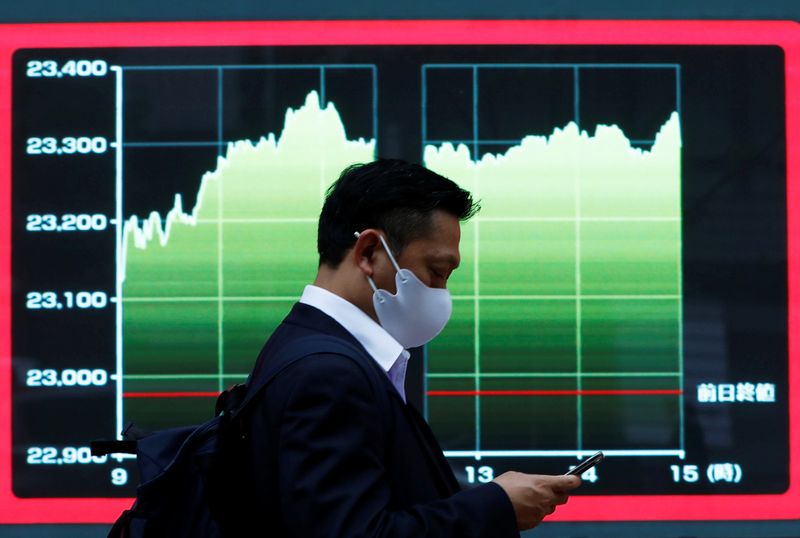This post was originally published on this site

The United States will hold its election later on Tuesday after a polarizing campaign where President Donald Trump and his Democratic rival, Joe Biden, have alluded to post-election disputes.
No immediate winner in the presidential race could shake markets. Trump trails Biden in national opinion polls, but polls in the swing states that will decide the election show a closer race.
Some analysts said stock markets are finding solace in the fact that monetary policy worldwide would stay loose and support share prices, even if the election does not immediately produce clear results.
“Whatever the outcome, central bank policy is poised to remain extremely accommodative globally,” analysts at ANZ Bank said in a client note. “Markets appear to have embraced that liquidity theme.”
Australia’s ASX 200 (AXJO) jumped 1.17% in early trading, while Hong Kong’s Hang Seng index futures <.HSIc1> rose 0.28%.S&P 500 futures (Esc1) climbed 0.31%, extending gains on Wall Street overnight, and {{178|Japan’s NiNikkei 225 futures (NKc1) added 0.41%.
Factory output data released on Monday showed surprising resilience in manufacturing activity in large parts of the world.
U.S. manufacturing activity accelerated more than expected in October, with new orders jumping to their highest in nearly 17 years, while Chinese factory activity expanded the fastest in a decade and euro zone manufacturing also sped up.
The run of upbeat economic data helped oil prices. U.S. Brent crude futures (LCOc1) was steady at $39.24.
Still, the uncertainty of the U.S. election and a resurgence in COVID-19 cases in Europe and the United States supported the dollar and gold prices, as some investors sought safety.
Gold was firm at $1,893.85 an ounce, while the dollar index (=USD) held ground at 94.027.
A firmer dollar kept the euro (EUR=) on a back foot, although it was steady at $1.16405 in early Tuesday trade.
U.S. Treasury yields mostly drifted lower overnight as investors braced for an eventful week with central bank meetings by the Reserve Bank of Australia, the Federal Reserve and Bank of England, as well as the release of U.S. jobs data for October.
The Reserve Bank of Australia is meeting on Tuesday and the market expects Australia’s central bank to expand its government bond-buying programme by about A$100 billion ($71.29 billion).


